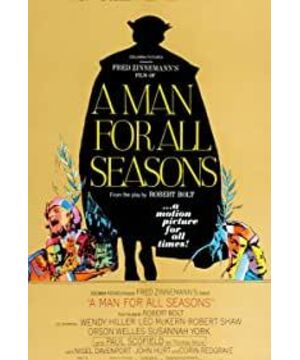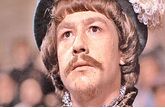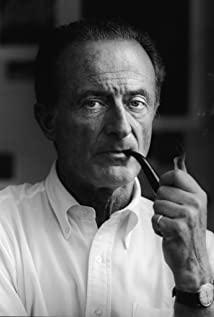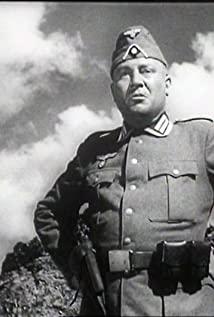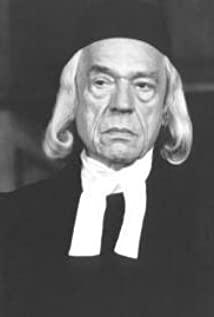The editing technique of "People of Four Seasons" is very eye-catching-because it is cut so concisely! Each scene is a paragraph, and there is almost no plot transition. For modern audiences, it may have become old and out of date, just like a stage play. It’s just that in this film, this exhaustively directed style has received excellent results. Not only did it not weaken the exquisiteness of the work itself, on the other hand, it also made me feel that the style of the movie was integrated with the character of the protagonist himself. It couldn't be better-More is also an anachronistic character. The world describes him as rational, decent, honest, and wise, so the biographical film about him should be the same.
How can we not mention Robert Bolt's brilliant script? In just two hours, we have carried out a lively and interesting analysis and dialogue on a large number of issues such as law and power, faith and secularity, silence and speech, compromise and persistence... A huge complex, from the king, the powerful, the politician to the lower-class people, the language style of each character is appropriately displayed, and not even a single sentence is dispensable. More is an excellent eloquent lawyer and judge, so movie fans who like court debates will not be disappointed by the logical and step-by-step verbal battles in the film.
The actors who participated in the film also had an equally brilliant performance. After watching another "Who's Afraid of Virginia Woolf" (Who's Afraid of Virginia Woolf?) in the same year, I was curious what kind of performance defeated Richard Burton and became the Oscar actor, and Paul Scofield in this film The performance, especially the precise grasp of the lines and tone, is an answer that I can agree with. Robert Shaw, who played Henry VIII, Wendy Hiller who played his wife Alice, etc. also left a very deep impression on me. Of course, the most famous actors in the film are supporting actors. In this film, John Hurt plays a young man who tries to climb up and finally sells his soul. Archbishop Wolsey, played by Orson Welles, is one of the opening characters. Minutes, but he has at least a few lines. The mistress Anne Boleyn is Vanessa Redgrave, perhaps one of the greatest actresses. She only appeared in a wedding scene. It took two or three shots for a short time without a single sentence. The lines, but her expression of expression in a flash still reveals extraordinary skills, and it also cleverly suggests that the marriage between the king and the new queen is not so harmonious.
Although most of the charm of this film comes from the drama itself, there are still many shots that are impressive. One of my favorites is the scene in which More walks home on a stormy night and meets his daughter Margaret. Fred Zinnemann, who directed this film, is a man of outstanding achievement. As an American director, his excellent control of this classic British film can be said to be impeccable.
The title of the film: "A Man For All Seasons" is an extremely compliment to the protagonist, and Sir Thomas More is indeed worthy of this title. As the most virtuous person in British history, he is not only a model of personality and morality, but also a famous philosopher. At the beginning of the film, in the living room at home, what the guest of honor is talking about is his immortal work "Utopia". As for whether this movie can be called "a film for all seasons", I think at least it drew a lot of the same valuable qualities from its protagonist: decent, concise, smart, and powerful. So, you should go to the movies instead of trying to listen to more nonsense from me.
http://www.pub8.net/review/man-for-all-seasons
View more about A Man for All Seasons reviews


